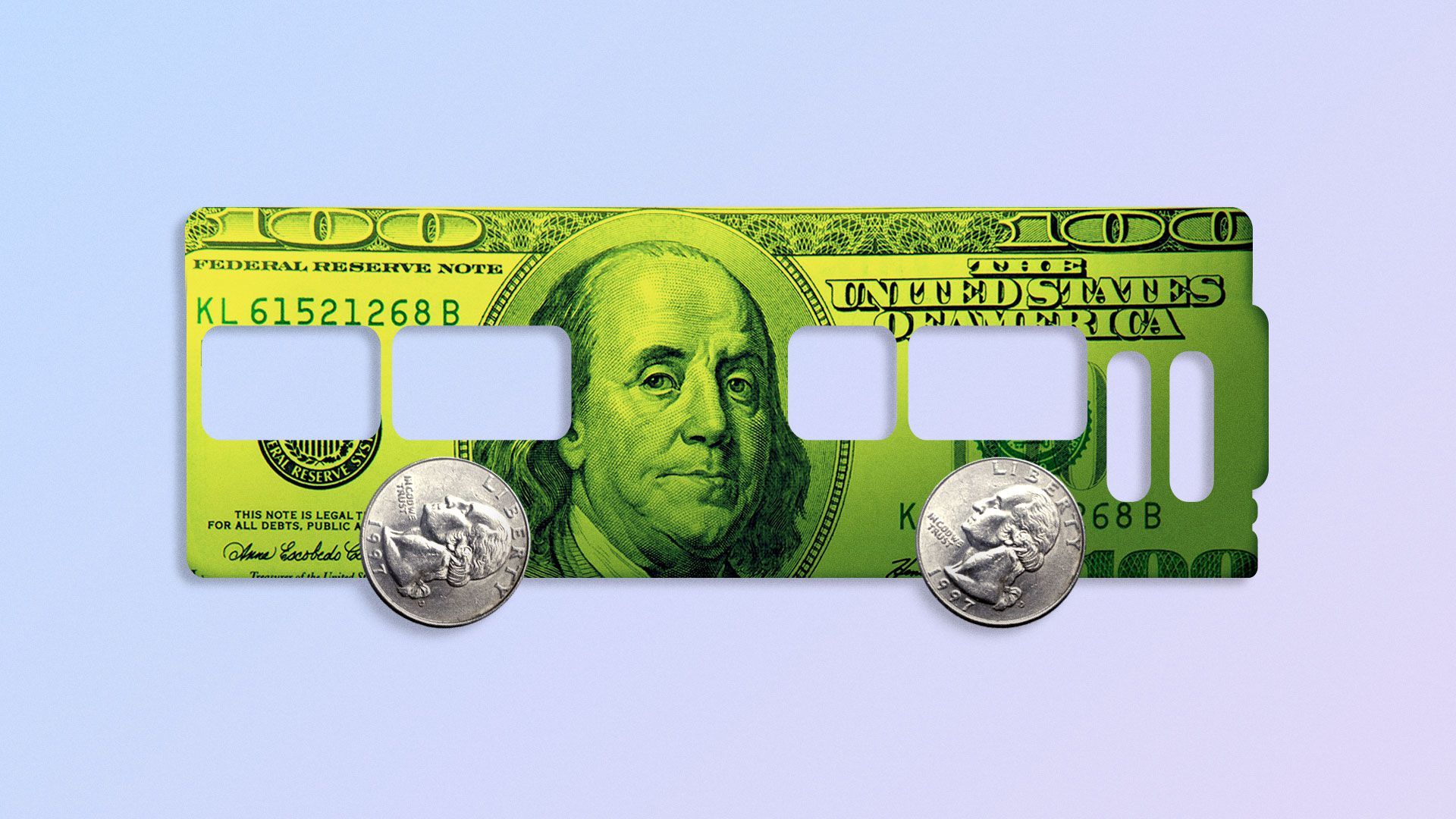Des Moines residents could see a transit-driven property tax bump
Add Axios as your preferred source to
see more of our stories on Google.

Illustration: Eniola Odetunde/Axios
DART is set to launch its first budget year using a new formula that bases property taxes for regional transit services on a population and service calculation, CEO Elizabeth Presutti tells Axios.
Why it matters: Des Moines' estimated transit tax rate will grow from around 95 cents per $1,000 valuation to an estimated $1.50 in the next eight years as the new formula is phased in.
- That’s roughly $62 more a year for a person with a $200,000 home after tax breaks are factored.
- West Des Moines’ estimated tax rate will grow by about 12 cents.
- All other areas will retain or reduce their current tax rate contributions.
The backdrop: Lawmakers gave DART the ability to collect property tax in 2006 from the communities it serves.
- Its budget for the fiscal year that begins July 1 is almost $38 million, mostly paid through property tax and fare revenue.
The state of play: DART Commission members have wrestled for years with how to fairly distribute costs for the service.
- The new formula factors in population and uses service tiers to help determine a city’s contribution.
Yes, but: DART’s Commission has determined that property taxes are not a viable long-term funding mechanism.
- Special taxes on sales, vehicles, income, payroll, fuel, hotel/motels and car rentals are all under consideration.
What's next: Budget diversification could take years and require approval from lawmakers and voters.
- DART is monitoring statewide legislation that would allow hotel/motel taxes to help pay for regional transit services.
- If approved, local taxpayers could be asked to vote on a special hotel/motel transit tax within the next year to lower property tax rates.
